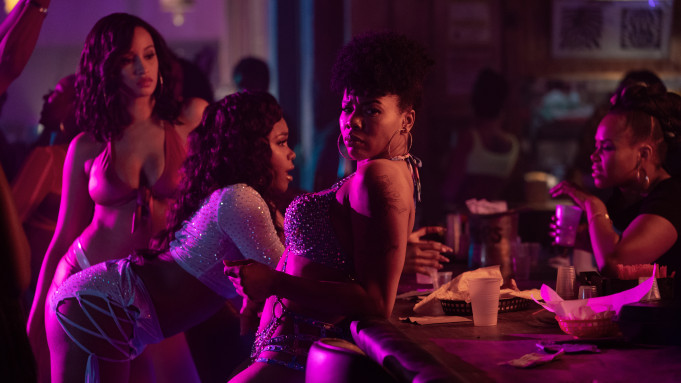Starz’s ‘P-Valley’ follows the lives of people employed at Pynk, a strip club in the Mississippi Delta. Run by Uncle Clifford, who expresses her eccentricity through the colors and flamboyance of her dresses, the strip club provides a means for some other end to every character. The spotlight shines on Mercedes, Autumn, Gidget, and Miss Mississippi, as a rivalry ensues between them, but so does unwavering support and heartfelt friendships. The show presents a raw and real view of the women, with a keen eye on their athleticism, and delivers a story that does not let go of you easily. With the depth imparted to these characters, which is rarely, if ever, seen in Hollywood, it makes us wonder if they are based on real people. Is ‘P-Valley’ based on a true story? Let’s find out.
Is P-Valley based on a true story?
No, ‘P-Valley’ is not based on, but is inspired by, a true story. It is the screen adaptation of a 2015 play called ‘Pussy Valley’ by Katori Hall, which, in turn, was inspired by the stories of real-life strippers. Growing up in Memphis, Tennessee, Hall had frequented strip clubs on several occasions. It was the place where people would celebrate their bachelor and bachelorette parties, and at times, even baby showers. It was more a part of the coming of age process than a taboo. It was the place where people from different strata would mix and mingle, making it “a central hub and very much part of the fabric of social activity down South.”
Another thing that captivated Hall was the brilliance of the performances, especially on the poles. “I was always so enthralled by what I saw, because it goes beyond just women taking the clothes off. The women who are up on those stages, they were putting forth a theatrical experience. I felt like I was at Cirque du Soleil,” she said, in an interview with The LA Times. The idea of seeing these women beyond their job pushed her to take a look into their lives. Over six years, she interviewed women all over the country and got a peek into their struggles, both professionally and personally.
The overwhelming amount of data out of this research led Hall to create a 3-hour play, which eventually found its way to TV, that would dive into the lives of different characters working at a strip club. The only thing that she wanted to not stray from was the humanization of her characters. Over the years, the over-sexualization of women, especially women of color, who work in strip clubs or are sex workers has created a wall between their skin and their general lives. This perception has also created a prejudice where people tend to judge more quickly than to stop and think about the humans who have a different set of challenges altogether.
Hall wants to break this wall of marginalization that has created the stigma of shame for them. “People have to eat. People have to shelter themselves. And so, for me, the major political act of the show is saying that women’s choices, women’s lives, all women’s lives, are worthy of being excavated,” she said to The New York Times. By diving into the stories of the people whose lives revolve around Pynk, Hall wants to highlight the complexity of character and life for strippers, focusing on the issues of racism, sexism, and colorism, among others, while also bringing to fore their hopes, dreams, and the sheer talent and strength it takes to be a pole dancer.
Read More: Where is P-Valley Filmed?

